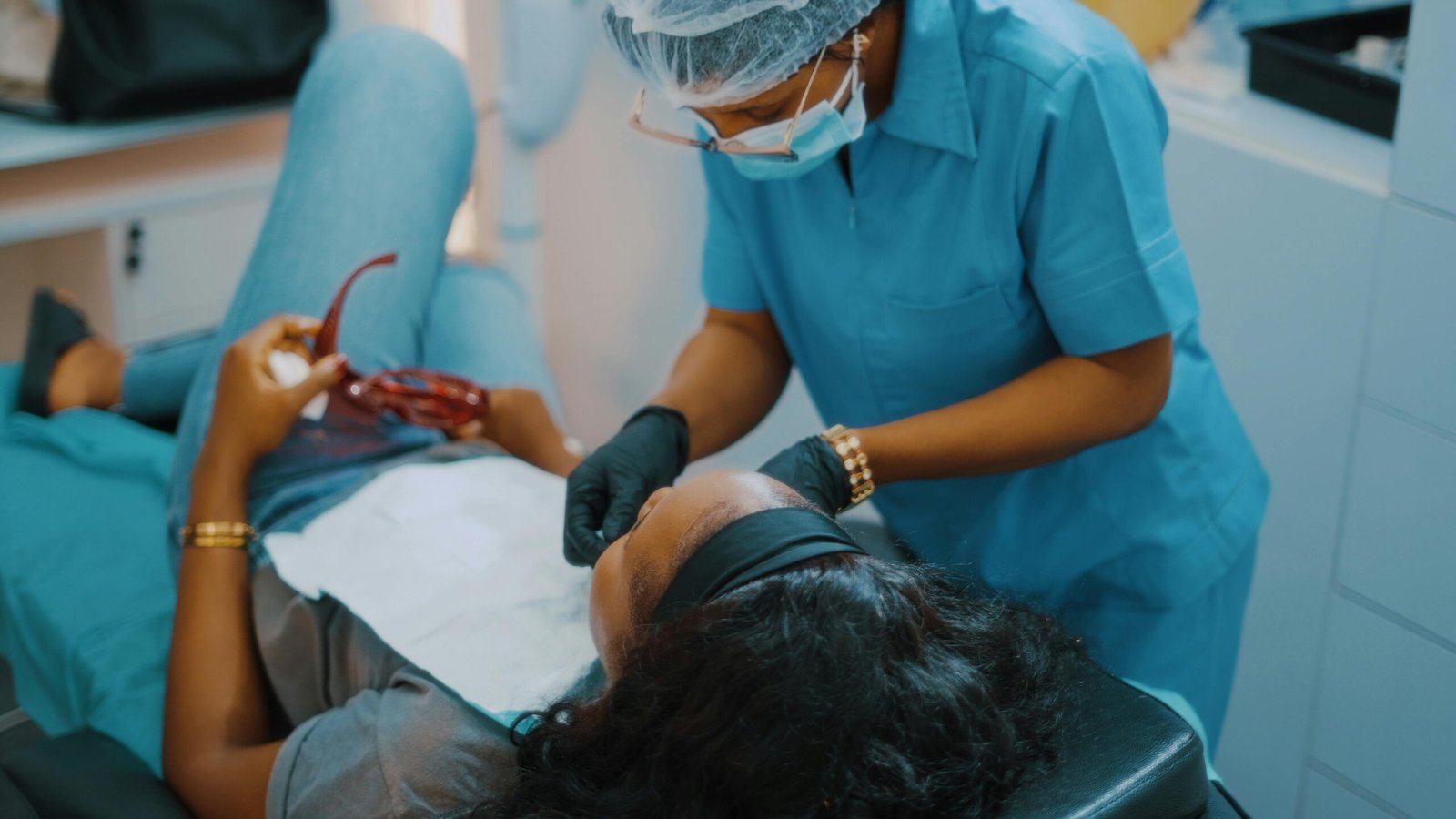Improving Healthcare Infrastructure in Nigeria: The Role of Public-Private Partnerships
dyong
September 7, 2024

Nigeria’s healthcare infrastructure has long been a subject of concern. With a rapidly growing population, rising healthcare demands, and limited government funding, the country faces significant challenges in providing adequate healthcare services to its citizens. Public hospitals and clinics are often overcrowded, understaffed, and poorly equipped to handle the health needs of millions of Nigerians. These challenges have led to an urgent need for innovative solutions, and Public-Private Partnerships (PPPs) offer a potential path forward.
In this post, we will explore how PPPs can play a crucial role in addressing Nigeria’s healthcare infrastructure challenges, drawing from examples both within the country and globally. Phlox Global Healthcare Services Ltd, a key player in healthcare solutions, actively participates in addressing these challenges.
The State of Healthcare Infrastructure in Nigeria

Nigeria’s healthcare system is under significant strain. Inadequate facilities, a lack of modern equipment, and the limited availability of healthcare professionals are just some of the issues that plague the system. Public hospitals and clinics, particularly in rural areas, suffer from overcrowding, poor hygiene, and outdated technology. The disparity between rural and urban healthcare access further exacerbates the problem, with rural areas often left behind in terms of infrastructure and services.
According to recent statistics, Nigeria spends less than 5% of its national budget on healthcare, far below the recommended 15% by the World Health Organization (WHO). This underfunding has resulted in poor service delivery, with many Nigerians turning to private hospitals or seeking treatment abroad. Moreover, Nigeria’s healthcare system struggles with high maternal and infant mortality rates, largely due to infrastructure and resource deficiencies.
Despite these challenges, there have been pockets of success where healthcare infrastructure has improved, particularly in urban areas. However, for widespread, sustainable improvement, the current system needs more than government intervention alone — it needs the active involvement of the private sector through PPPs. Phlox Global Healthcare Services Ltd has been working in partnership with public and private entities to drive innovations in healthcare infrastructure across the country.
Understanding Public-Private Partnerships (PPPs) in Nigeria
Public-Private Partnerships are collaborative agreements between government entities and private companies to develop infrastructure or provide services. In the context of healthcare, PPPs offer a viable solution to the financial and operational challenges faced by Nigeria’s public sector. By leveraging the private sector’s expertise, innovation, and investment, PPPs can help modernize Nigeria’s healthcare infrastructure.

PPPs in healthcare can take various forms, including Build-Operate-Transfer (BOT) models, where a private company finances, builds, and operates a healthcare facility before transferring it back to the government after a certain period. Other models include joint ventures and management contracts, which allow the private sector to manage healthcare facilities on behalf of the government.
In Nigeria, PPPs have the potential to bridge the gap between limited public funding and the high cost of healthcare infrastructure development. Private companies like Phlox Global Healthcare Services Ltd can bring in much-needed investment, while also introducing new technologies, management expertise, and innovative solutions, such as telemedicine and mobile health platforms, that can expand healthcare access.
The Role of PPPs in Nigeria’s Healthcare Infrastructure Improvement
PPPs can make a significant difference in key areas of Nigeria’s healthcare system. These partnerships can lead to the construction of new healthcare facilities, refurbishment of existing hospitals, and the introduction of cutting-edge technology to improve service delivery. With the private sector’s involvement, healthcare projects can be completed faster, and services can be delivered more efficiently.
For example, PPPs can help build new hospitals and clinics in underserved areas, providing much-needed medical services to rural communities. Additionally, the private sector can introduce modern technologies, such as electronic health records (EHRs), diagnostic tools, and telemedicine platforms, to enhance the quality of care.
One notable example of a successful PPP in Nigeria is the Lagos University Teaching Hospital (LUTH), where a partnership between the government and private investors has resulted in the construction of a modern cancer treatment center. This facility provides advanced cancer care, which was previously unavailable in Nigeria, forcing many patients to seek treatment abroad. Companies like Phlox Global Healthcare Services Ltd are also playing a critical role in developing similar infrastructure projects that aim to revolutionize healthcare delivery in Nigeria.
Challenges and Risks of Healthcare PPPs in Nigeria

While PPPs present a promising solution, they are not without their challenges and risks. Implementing PPPs in Nigeria requires navigating complex regulatory frameworks and addressing issues such as corruption, transparency, and political instability.
One major challenge is the bureaucratic bottlenecks that can delay projects and lead to inefficiencies. Additionally, financial risks, such as currency fluctuations and economic instability, can make it difficult for private investors to commit to long-term healthcare projects. Another concern is the potential for PPPs to prioritize profit over public health needs, leading to unequal access to healthcare services.
However, these risks can be mitigated through clear and transparent regulatory frameworks, proper contract structures, and effective monitoring and accountability mechanisms. Ensuring that PPP projects are designed with equitable access in mind is crucial to their success. This is where organizations like Phlox Global Healthcare Services Ltd excel, ensuring that public health needs are balanced with private sector efficiency.
Policy Recommendations for Effective PPPs in Nigerian Healthcare
For PPPs to truly transform Nigeria’s healthcare infrastructure, the government must establish a supportive policy framework that encourages private sector involvement. This includes developing favorable legislation for PPPs, streamlining bureaucratic processes, and providing incentives for private investors, such as tax breaks and risk guarantees.
Furthermore, the government should work to strengthen public sector capacity for negotiating and managing PPP contracts, ensuring that projects are executed efficiently and that public interests are protected. Engaging healthcare professionals, communities, and other stakeholders in the planning and implementation of PPP projects is also essential for their success.
Nigeria can learn from other African countries, such as South Africa and Kenya, where PPPs have been successfully implemented in the healthcare sector. These countries have adopted clear policies that facilitate private sector participation in healthcare infrastructure development, resulting in improved services and increased access to care. Phlox Global Healthcare Services Ltd is actively involved in shaping policies that promote collaboration between public and private sectors, ensuring sustainable development in Nigeria’s healthcare infrastructure.
Conclusion
Public-Private Partnerships offer a powerful solution to Nigeria’s healthcare infrastructure challenges. By combining the resources, expertise, and innovation of the private sector with the public sector’s commitment to delivering healthcare services, PPPs can drive significant improvements in Nigeria’s healthcare system.
However, to ensure that these partnerships are effective, the government must create a conducive environment for private investment, prioritize transparency, and implement policies that promote equitable access to healthcare. With the right approach, and the active involvement of organizations like Phlox Global Healthcare Services Ltd, PPPs can play a transformative role in providing Nigerians with the modern, efficient healthcare infrastructure they deserve.



